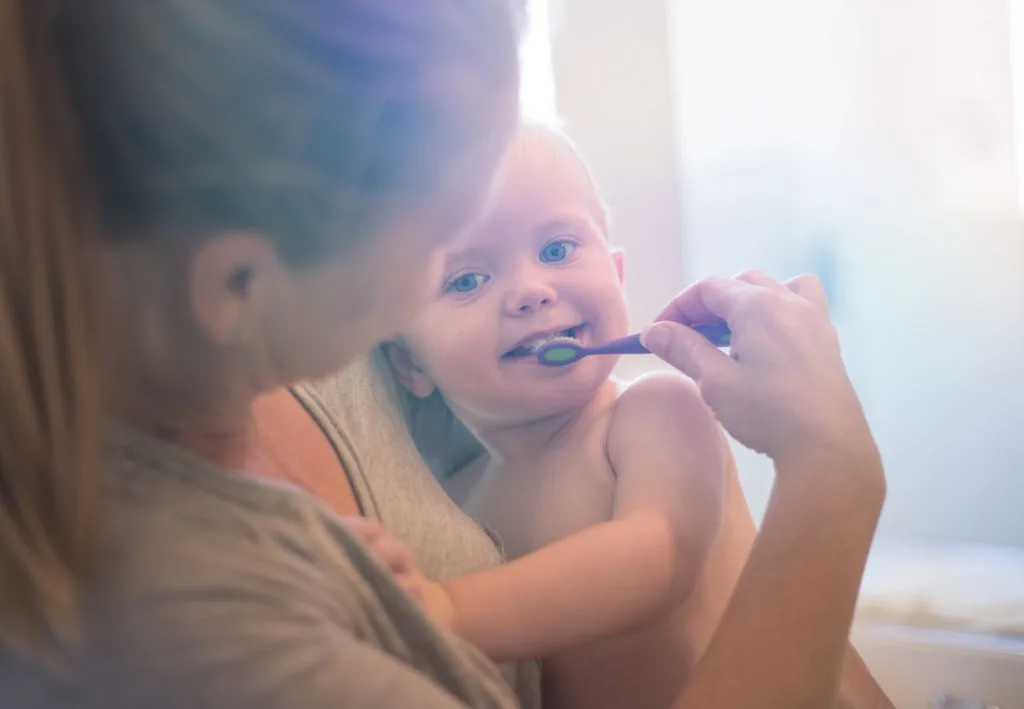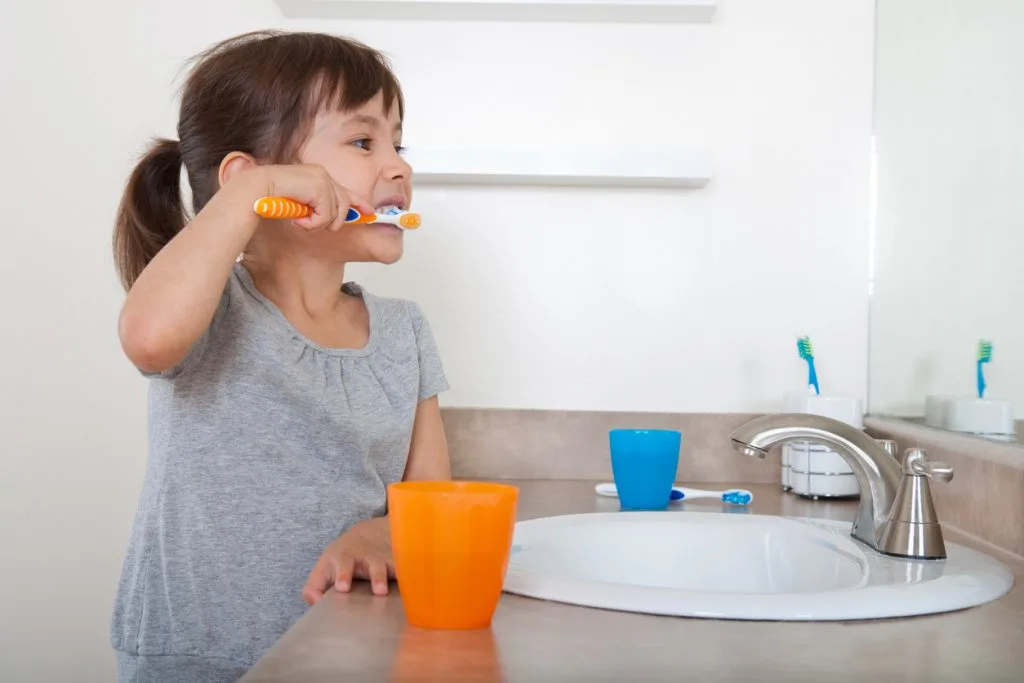What is the first oral problem that affects children from 0 to 10 years of age? Tooth decay is one of the leading ailments in the US, occurring 5 times more often than asthma. The Centers for Disease Control and Prevention (CDC) estimate that 60% of American children will have cavities before their fifth birthday, adding that 40% of them will already have cavities. that nature for when they get to kindergarten.
Therefore, children with cavities are more likely to develop oral health problems both immediately and in the long term, which include pain, infections, difficulty speaking, problems when eating food, change in the color of the teeth and, even tooth loss.

Take Care Of Your Child’s Oral Routine As Early As Possible
What are the main mistakes parents make when caring for their children’s teeth?
- Do not enroll children in an oral medical service from the first moment: Take your child to the pediatric dentist before their first birthday. The specialist can help you establish a dynamic that promotes good tooth care from an early age to avoid problems in the future. A Pediatric Dentist can tell you everything that you need to know about your child’s teeth.
- Not worrying about baby teeth: One of the biggest mistakes a parent can make is ignoring dental problems that their child may have because of the first teething or baby teeth. According to a recent survey, it was revealed that 73% of those asked have the mistaken belief that adult teeth are more important than milk teeth. The truth is those baby teeth are just as important as permanent teeth as they lay the foundation for the growth of adult teeth.
- Consume large amounts of sugars: Control the juices your child consumes as they are very harmful to teeth. Try to limit their intake to 6 ounces a day.
- Putting sugary liquids in bottles: If you give your baby a bottle before going to sleep, give them water. Drinks containing any sugary liquids or carbohydrates such as milk, formula or fruit juice, make the teeth susceptible to an attack of bacterial acid throughout the night.
- Put aside fluoride: Periodic exposure to fluoride and in appropriate amounts is one of the most effective ways to avoid cavities since it helps to strengthen them and prevent cavities.

My child doesn’t want to brush their teeth and shows no interest.
If your child doesn’t want to brush their teeth, then you should consider ways to make it fun and teach them the importance of it. From a young age, you may find that the discomfort and aversion to brushing occurs. As a parent, you will begin to notice that the lower incisor teeth begin to loosen or open a little more the distance with other teeth because the new permanent tooth is pushing out. These permanent anterior teeth may appear slightly behind the temporary ones, so the pediatric dentist should be consulted and the necessary actions are taken.
1. Discomfort may occur
Your child may feel some discomfort with the movement of a loose tooth either when he eats or moves the upper tooth with the lower one and vice versa. You will also notice that the gum becomes inflamed as a sign that the first permanent molar (6+ years old) is about to come out. The gum breaks and the child feels discomfort when chewing food or rubbing it with the upper molar, but this does not produce any dental emergency.
2. Your child may lose interest in brushing
The discomfort your child feels may lead them to not want to brush their teeth as often as before, a situation that increases the risk of infection due to the inflammatory process. You must remain attentive to the tooth replacement process, from checking the appearance of new permanent pieces to the oral hygiene care that your child practices.
3. Strengthen oral hygiene habits in your child
As they age, you should begin to help teach them great oral hygiene habits, as well as in the use of a toothbrush and dental floss and an adequate brushing technique. In those years, they slowly acquire fine motor skills to use cleaning instruments, but your support is essential for them to advance in that sense. The size of the brush must be appropriate for its age and must be replaced every 2 months.

The use of floss can be problematic and take time for the child to train himself/herself. At night, through the demonstration, you can teach them how to hold it between their fingers and slide it between their teeth without damaging the gum.

Jessi is the creative mind behind The Coffee Mom, a popular blog that combines parenting advice, travel tips, and a love for all things Disney. As a trusted Disney influencer and passionate storyteller, Jessi’s authentic insights and relatable content resonate with readers worldwide.

These Things Will Stain Your Teeth! — The Coffee Mom
Tuesday 15th of June 2021
[…] Of Hygiene. When was your last dentist visit for a hygienist to clean your teeth? You need to take proper care of your teeth if you want them to […]